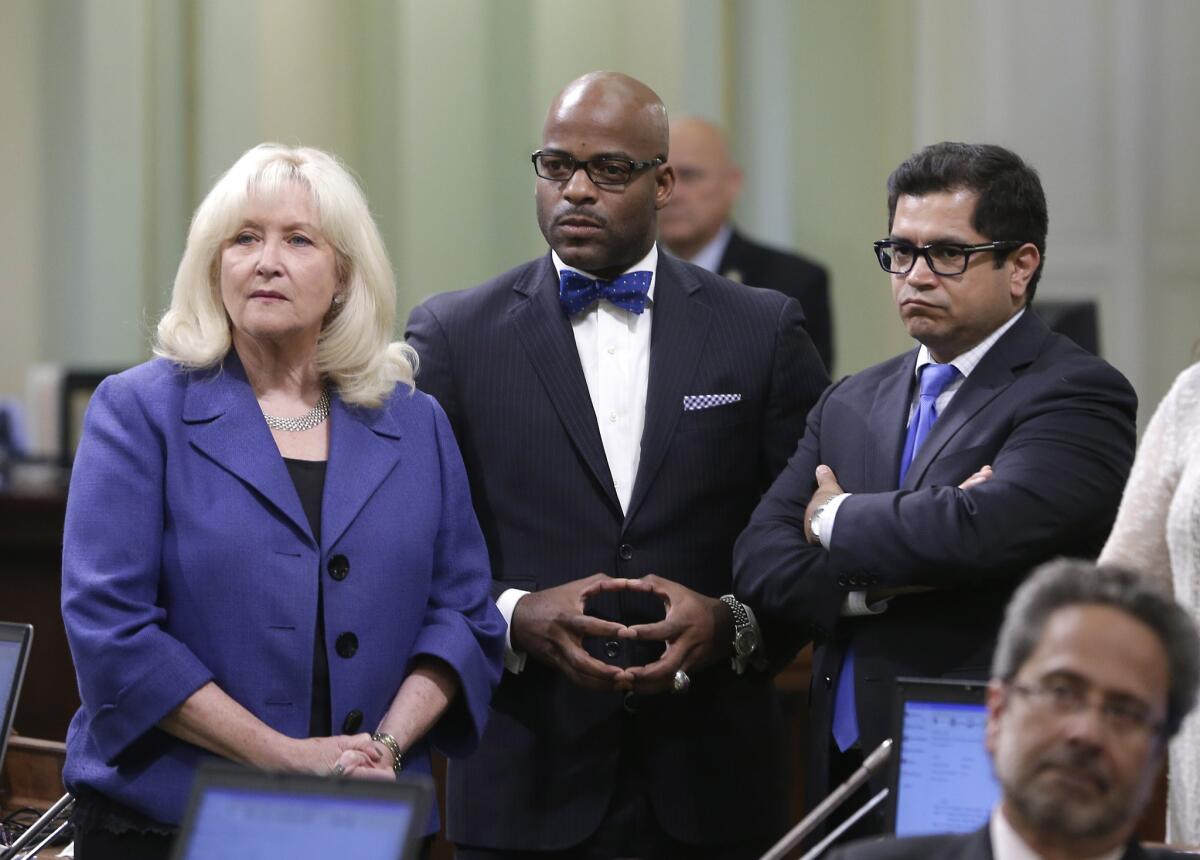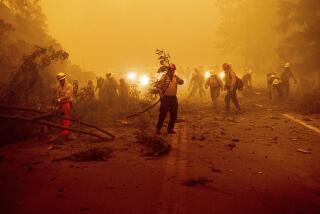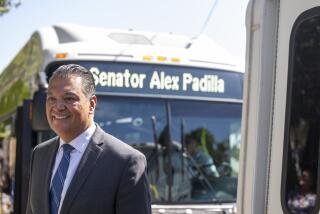State lawmaker wants $1.4 billion in polluter fees that are ‘just sitting there’ put to work

Assemblyman Jimmy Gomez (D-Los Angeles), right, joins Assembly Minority Leader Connie Conway (R-Tulare) and Assemblyman Isadore Hall (D-Compton) on the floor of the Capitol in June 2014.
It’s not common for politicians to leave money on the table, but that’s what happened when a new state budget was approved this past summer.
Roughly $1.4 billion in revenue from California’s cap-and-trade program, which charges fees to polluters, will be collecting dust in a state bank account this year.
How to spend the money, which is required by law to be used for efforts that lower greenhouse gas emissions, was such a source of contention that Gov. Jerry Brown and top Democratic lawmakers decided to put the question off until later.
Now, Assemblyman Jimmy Gomez (D-Los Angeles), chairman of the Assembly appropriations committee, wants new legislation to spend the cash in the coming months, rather than waiting for another state budget to be finished next summer.
Join the conversation on Facebook >>
The money, Gomez said, “is just sitting there. We need to do something to get a proposal on the table and get the money out the door as soon as possible.”
Lawmakers are returning to the Capitol in January, and Gomez said he’ll be working with his colleagues to hammer out details that could include clean-energy programs, workforce training and low-carbon transportation.
Any proposal for spending the money is likely to be controversial, especially because it’s also a factor in conversations over how the state will pay to fix its dilapidated roads. Brown and Republican lawmakers have suggested using varying amounts as part of a larger multibillion-dollar plan.
Gomez, who is also co-chairman of a committee looking at the state’s roads, said he’s comfortable using some, but not all, of the cap-and-trade funding for maintenance. He’d rather see more go to mass transit.
The money wasn’t supposed to be left unspent. When announcing a deal on the rest of the budget in June, Brown told reporters that he expected the issue to be resolved “fairly expeditiously in the next few days or weeks.” But that never happened, and lawmakers haven’t reached a deal on funding road repairs either.
Gomez also is pushing a second proposal for cap-and-trade money to increase the amount that reaches poor Californians. Right now 25% of the funding is required to be spent on projects that benefit disadvantaged communities; he wants another 25% to go directly to low-income households, no matter where they are located.
That could include weatherizing homes to increase energy efficiency or installing rooftop solar panels.
“There’s a feeling that a lot of our environmental laws are based on a trickle-down environmental policy,” Gomez said. “What we’re trying to do is change that by shifting how the programs are structured so [low-income Californians] can see the direct benefits of cap and trade.”
Follow @chrismegerian for more updates from Sacramento.
For more political coverage, go to www.latimes.com/politics.
MORE FROM POLITICS
Gov. Brown still struggling for GOP support on funding for road repairs
L.A. Democrats ask Obama for funding toward Los Angeles River restoration
Rep. Pete Aguilar leads moment of silence on House floor for San Bernardino victims
More to Read
Get the L.A. Times Politics newsletter
Deeply reported insights into legislation, politics and policy from Sacramento, Washington and beyond. In your inbox three times per week.
You may occasionally receive promotional content from the Los Angeles Times.











